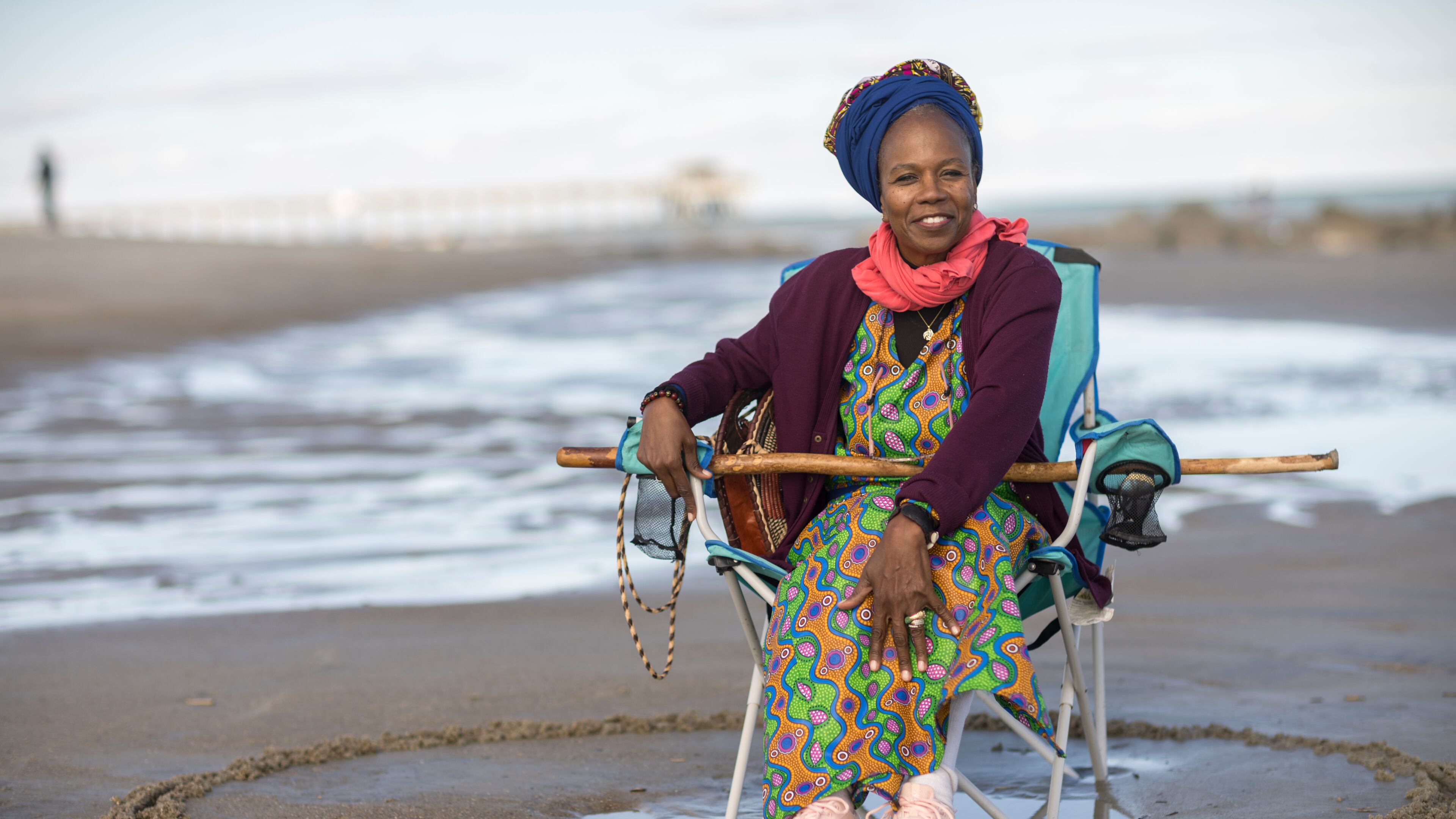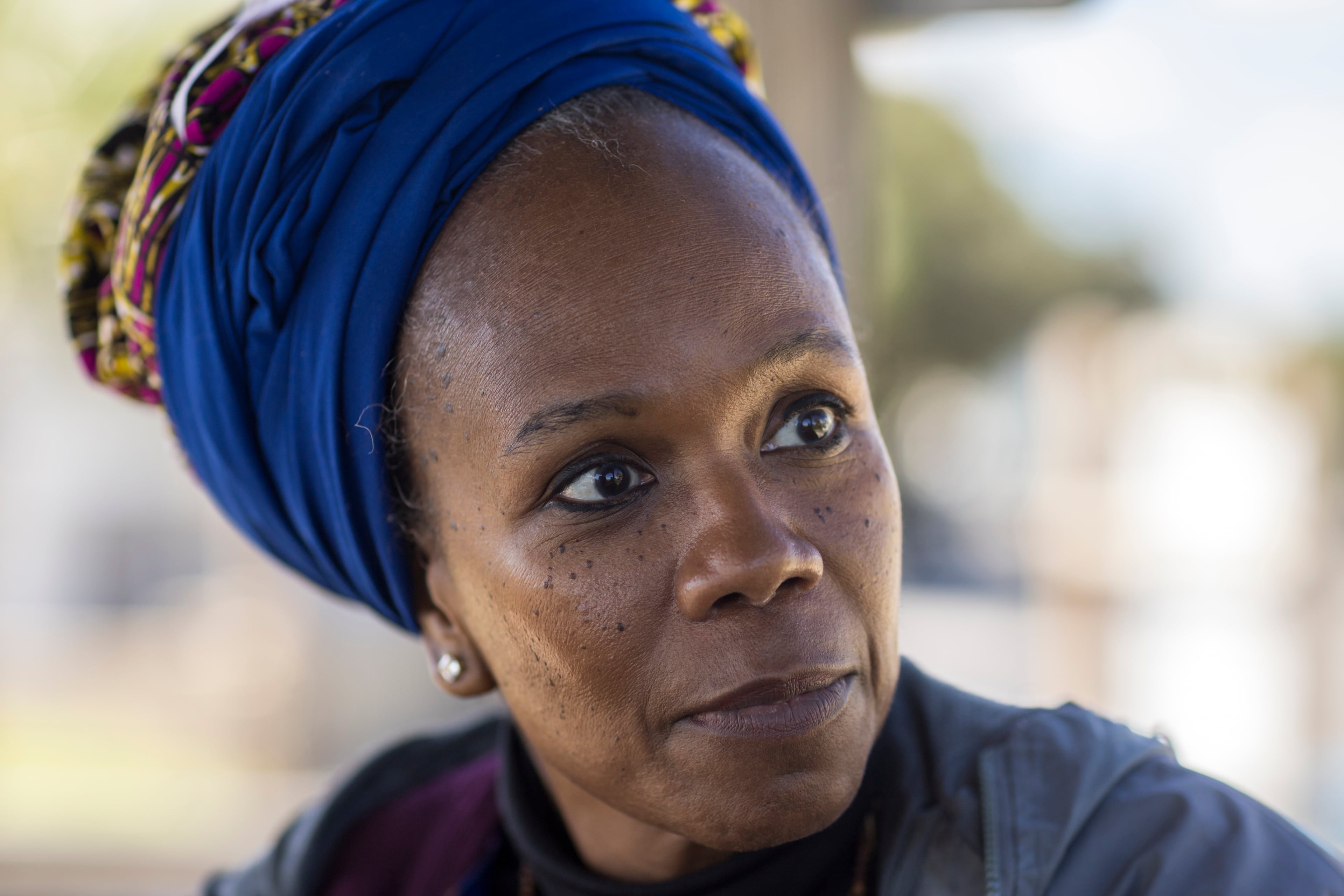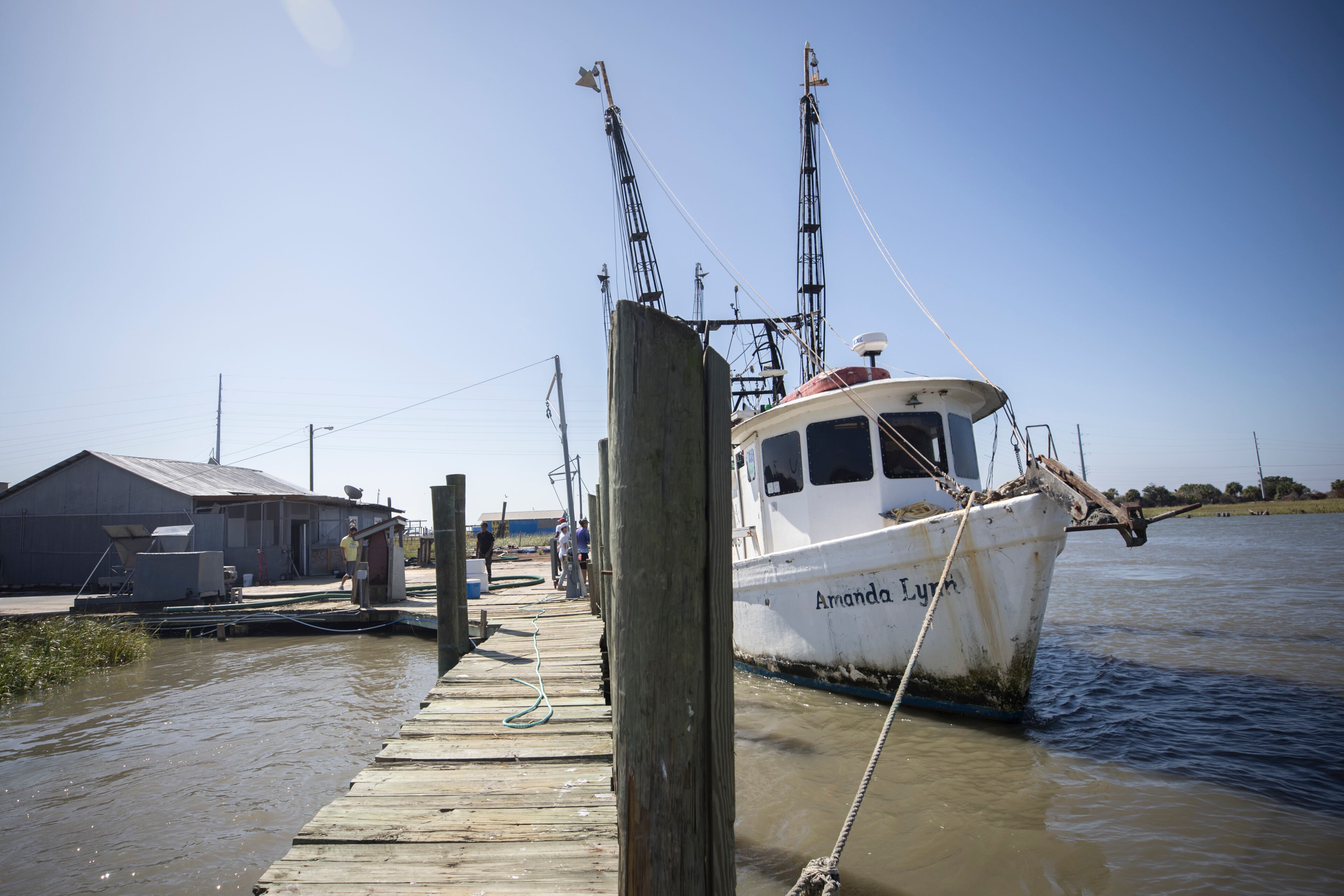A bid for Black history at Savannah’s beach

TYBEE ISLAND ― Julia Pearce the toddler couldn’t have enjoyed a day at the beach on Tybee Island. Pearce is Black, and Tybee’s sands weren’t integrated until 1963.
Now, 60 years later, Pearce is vying to be the shore town’s first Black mayor. She’s among three candidates for an open seat in the Nov. 7 election.
With early voting now underway, many Tybee politicos consider the Spelman College graduate — class of 1984 — a viable threat to the perceived front-runner, Brian West. He served the past two years on the City Council before resigning to run for mayor. The third candidate, Mack Kitchens, is a longtime local resident who has mounted two previous failed mayoral bids.
“We have three interesting characters running for election, and they all represent different points of view,” said Shirley Wright, a Tybee resident and chairwoman of Forever Tybee, a nonpartisan organization that advocates for transparent city government. “Julia is someone who understands the issues and understands the residents on Tybee are yearning for a sense of community. Whether that will be enough to take people to the ballot box for her, I don’t know.”
Pearce’s bid is a polarizing discussion point for Tybee’s 3,091 residents. For 26 years, she’s been one of the island’s few Black residents — U.S. census statistics say Tybee is 96% white — and she has spent her retirement years raising awareness of the town’s ugly racial history.

She’s told “hard truths” about the Jim Crow segregation of the beach, the island’s place as home to a quarantine station along the trans-Atlantic slave trade route and the enslaved Africans who built Tybee’s two iconic lighthouses.
Her reputation, say many Tybeens, is for “making everything about race,” an image she acknowledges — and embraces.
“My neighbors feel like I come with baggage because I’ve been here so long and challenged the local mores,” said Pearce, who wears brightly colored traditional African dress when out in public. “You don’t have to like me. You don’t even have to speak to me. But you should vote for me because you should see the bigger picture.”

Escape to the beach
Pearce may forever feel like an outcast in her adopted hometown, but she credits Tybee for changing her life.
She fled to the island from Atlanta in 1997 to escape an abusive relationship, driving through the night with her two young daughters. She arrived on St. Patrick’s Day and found every hotel room booked by revelers in town for Savannah’s famed parade and celebration.
She was pleading for lodging with a front desk clerk at one hotel when his face began to redden. Pearce, a registered nurse, expressed concern and noticed the man had a tracheostomy in his throat.
The clerk said the tube was new and he was still learning how to clean it. Pearce was familiar with the equipment and cleared his airway. In return, he gave her a room.
A few days later, Pearce drove into Savannah to interview for a job at Memorial Hospital. Asked by the hiring manager why such a highly qualified nurse had moved to the area without lining up work ahead of time, Pearce broke down and “spilled everything” about her troubled personal life.
The administrator hired her — and connected her with SAFE Shelter, a home for battered women and their children.
After six months in the shelter, Pearce and her daughters moved into transitional housing in Savannah. She’d drop her kids at school in the morning, and on days she wasn’t working she would go to Tybee to sit on the beach and contemplate her life.
During one visit, she met her future husband, Mallory Pearce, a Californian who’d moved east to teach at what is today known as Georgia Southern University’s Armstrong campus. Pearce lived at Tybee and served on the City Council. In 2000, the couple married, with the city’s then-mayor, Walter Parker, officiating.
“I was just so numb inside until I met Mallory,” she said. “He brought me to the beach, and he saved me.”
A bad case of ‘empty nest syndrome’
Being married to an elected official, Julia Pearce never fostered political ambitions of her own.
She spent her first 15 years at Tybee working and raising her daughters, Julia Sierra and Remi Simone. Only when she contracted “empty nest syndrome” did she become active in her community.
She and a group of friends launched the TybeeMLK organization in 2013, staging the island’s first Martin Luther King Jr. Day parade the following year.

Her interest in activism blossomed on another holiday in 2014. Over the July 4th weekend, a cousin visiting Tybee for a family reunion asked her what she knew about the island’s lazaretto, or quarantine station.
Pearce was unfamiliar with the facility used to warehouse, quarantine and bury enslaved Africans who became ill during the voyage from their homeland to America. Once she learned a tidbit about Tybee’s sordid Black history, she “became thirsty for it” and made advocacy the centerpiece of her retirement plans.
“I felt like I’d been duped,” Pearce said. “Many people around here knew about the history, including those at the local historical society, but they never talked about it. That’s because they’re white, and they’re embarrassed by it.”
Most if not all Tybee residents as well as many in Savannah have come to know a fuller history of the island over the past decade. Markers acknowledging the lazaretto and wade-ins staged during the civil rights protest have been erected.
Earlier this year, Pearce led a local delegation on a visit to the West African nation of Ghana. During the 1600s and 1700s, forts along Ghana’s coast served as the largest embarkation points for newly enslaved Africans, who passed through a broad wall opening known as the “Door of No Return” on the way to the slave ships.
Many of those vessels stopped at the Tybee lazaretto en route to Savannah and other ports along the Georgia and South Carolina coast.
“She’s lived here for decades and has seen the best and worst of the actions on the island,” Forever Tybee’s Wright said. “She has gathered people around her that shared her wish to tell the truth about Black history on Tybee and have really brought attention to those stories.”

‘The face of Tybee’
Pearce’s activism gives her name recognition for the mayor’s race. But her crusading could also be a pitfall, and not just with those voters who don’t appreciate her message of racial equity.
In Tybee’s form of government, elected officials set policy and a city manager runs the city. The mayor only votes to break ties.
The mayor’s role, says current officeholder Shirley Sessions, is to be “the face of Tybee.” Success is measured by the mayor’s ability to strengthen the bond between residents and the local government and to build and grow relationships with officials off the island, such as those at the county and state levels and in the region’s economic development community.
With that in mind, count Sessions among those who say Pearce can win the election. Tybee is a “quirky and accepting place” when it comes to leadership. Sessions was a trailblazer herself, elected in 2019 as the first woman to become the island’s mayor.
“Tybee is ready for a person of color as mayor so long as the platform and vision is something they can support,” Sessions said. “Your agenda needs to be the island’s agenda, not a personal agenda.”



